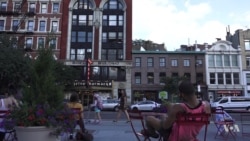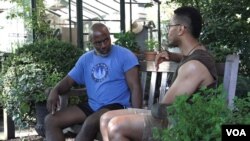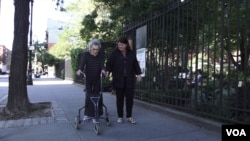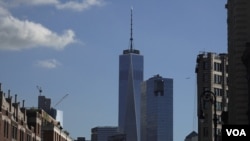Where there is calm, there also is sometimes anxiety. Where there is strength, there, too, is vulnerability.
Ask any New Yorkers if they feel safer today than 15 years ago, when the World Trade Center was targeted in the single largest terrorist attack on United States soil. Sometimes the answer is yes, sometimes no.
Often, it’s yes and no.
Since September 11, 2001, the United States has taken unprecedented measures to keep itself secure. But the world, as both Americans and tourists know it, will never be the same.
“I don’t know that I feel safer as much as I think my paranoia makes me behave differently,” said Anthony Dixon, a former New York resident who was standing in lower Manhattan in 2001, watching the north tower of the World Trade Center burning.
Today, Dixon, like many other Americans, feels the days of attending large events without worry are generally over.
“I think twice about going to the Halloween parade. I think twice about going to the gay pride parade — any event where there is going to be a lot of people,” Dixon said. “But I realize it can happen on a peaceful day like this.”
Ryan Taylor, a personal stylist from Prospect Heights, a neighborhood in Brooklyn, doesn’t feel safer at all. The threat of large-scale destruction may be reduced, but he thinks the overall danger level is still high.
“The subway is incredibly vulnerable. Stores and shops are incredibly vulnerable. What are you going to do?” said Taylor. “I actually feel more in danger because of the provocation, because of separatism.”
Extreme security
Angel Corral is originally from Mexico, but he calls New York home today. He says New Yorkers are better off than much of the rest of the world's people, particularly those who have fled their homes in Syria.
“We enjoy a state of extreme security, safety, and there is someone responsible for that,” Corral said. “There is someone invisible taking care of us.”
New Yorkers, as diverse as their concerns and opinions are, take a lot of pride in their hometown.
Ruth Levine, a volunteer at Jefferson Market Garden in Greenwich Village, has called New York home for 95 years.
“I wouldn’t want to live anywhere else,” she said.
As a result of 9/11, Levine says she takes nothing for granted anymore. But even when she feels uneasy, she doesn’t let it change her lifestyle, thanks to “a nucleus of wonderful friends.”
“I think it is a good thing that we don’t let events overpower us, overpower our thinking,” Levine said. “It shows a healthy mind, and a healthy approach to life.”
No place like home
One World Trade Center, the 541-meter-tall building that stands next to the spot where the twin towers were destroyed 15 years ago, is visible from the garden where Levine volunteers. She sits there, happily greeting visitors and their pets to the small park, an oasis in the city where New Yorkers come to reflect and find peace.
Seated beside Levine at the front gate, Betsy Randolph talks about the history of the garden, on the site of a former jail.
“I’m surrounded with all this beauty and lushness, and underneath this is the history of what this once was. Look how far we’ve come,” Randolph said, admiringly.
“You could say that about 9/11 and post-9/11. Look how far we’ve come.”








